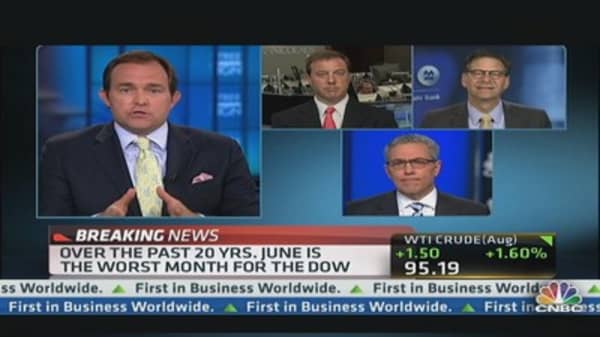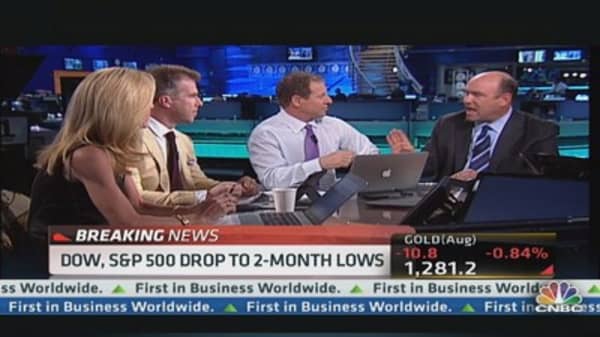Stocks were sharply lower for most of the session amid worries the Federal Reserve's stimulus measures may be winding down and a possible cash crunch in China. The Shanghai Composite suffered its worst one-day selloff in nearly four years. And Goldman Sachs became the latest bank to downgrade China's growth outlook, saying tighter financial conditions are a downside risk for the world's second largest economy.
(Read More: China's Credit Squeeze Deals Fresh Blow to Stocks)
"We're currently in a risk off environment that has built up over the recent days," said Michael Sheldon, chief market strategist at RDM Financial Group. "Here in the U.S., it will be important to watch the economic data over the next few months—if the economy can be supported with higher interest rates, investors should return to equities. But if the economy is unable to stand on its own and the Fed still wants to take away the punch bowl, that could spell more difficulty for the equity markets."
(Read More: Buy Treasurys, as Bernanke Is All Talk: Bond Pros)
The U.S. greenback rallied against a basket of currencies, trading near its highest level in almost three weeks.The dollar index extended its sharp gains from last week's 2 percent rally, its biggest weekly rally since November 2011.
"The natural stopping point in the market may be the March and April lows in the 1,535-1,540 area…We could see a bit more downside as the market comes to grips that the end of the Fed stimulus program is in sight," said Sheldon. "Also, the key is to watch the bond market—the rates have increased rapidly and we need to see that settle down."
Furthermore, the Bank for International Settlements (BIS) waved a red flag for central banks over the weekend, saying it was time to end ultra-lose monetary policy. BIS—known as the central bank for central banks—said in its annual report that current monetary policy in the U.S., euro zone, U.K. and Japan will not bring about much-needed labor and product market reforms, and is a recipe for failure.





